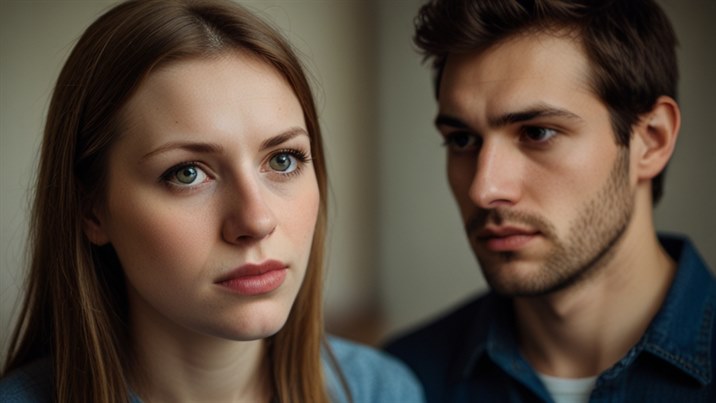It’s a familiar story: you tell yourself, “This time will be different.” But somehow, you find yourself drawn to the same type of person — the one who leaves you anxious, confused, or emotionally drained. Why does this happen? Why do we fall for the wrong people, even when we know better?
The answer lies in psychology. Our attraction patterns are not random; they are deeply influenced by our upbringing, attachment style, self-esteem, and even our subconscious need for familiarity. Understanding these patterns is the first step toward breaking free from toxic cycles and finding real, lasting love.
In This Article
- 1 1. The Familiarity Trap: We Love What We Know
- 2 2. The Dopamine Effect: Mistaking Excitement for Love
- 3 3. Unhealed Childhood Wounds
- 4 4. Low Self-Worth and the Need for Validation
- 5 5. The Illusion of Fixing or “Saving” Someone
- 6 6. Fear of Being Alone
- 7 7. Ignoring Red Flags Out of Hope
- 8 8. The Subconscious Attraction to Challenge
- 9 9. Hollywood and Social Media Influence
- 10 10. Emotional Dependency and the “Fixation Loop”
- 11 How to Break the Cycle and Choose Better Love
- 12 Final Thoughts
1. The Familiarity Trap: We Love What We Know
Humans are wired to seek familiarity. Even if our childhood experiences were unhealthy — distant parents, inconsistent love, or emotional neglect — our brains still register that pattern as “normal.”
This means that, as adults, we may unconsciously be attracted to people who recreate those early emotional dynamics. It feels like home, even when it hurts.
Example: If you grew up trying to earn a parent’s affection, you might be drawn to partners who are emotionally unavailable — repeating the cycle of trying to prove your worth.
2. The Dopamine Effect: Mistaking Excitement for Love
We often confuse emotional intensity with genuine connection. When someone makes us feel butterflies, our brains release dopamine — the pleasure chemical. But dopamine is also released during uncertainty, inconsistency, and emotional highs and lows.
That’s why relationships that feel like a “rollercoaster” can be addictive. The drama triggers the same reward system as gambling — keeping us hooked, even when we know it’s unhealthy.
READ MORE: Reviving Romance: 15 Old-Fashioned Relationship Habits for a Timeless Love
Tip: Healthy love feels peaceful, not chaotic. If you feel constant anxiety, confusion, or emotional whiplash, that’s not chemistry — it’s your nervous system reacting to instability.
3. Unhealed Childhood Wounds
Our early relationships shape how we understand love. If we didn’t receive consistent affection, we may associate love with rejection or struggle. This creates a subconscious belief that love must be earned — and we end up choosing partners who reinforce that pattern.
Example: Someone who felt invisible as a child may be drawn to partners who ignore them — hoping that “if they finally choose me, it will mean I’m worthy.”
READ MORE: Decoding Emotions: 10 Subtle Clues That Reveal a Man’s Confusion About His Feelings
The truth? Love doesn’t require pain to feel real. Healing your inner child helps you attract love that feels safe, steady, and mutual.
4. Low Self-Worth and the Need for Validation
When you don’t fully believe in your own value, you’re more likely to accept poor treatment — or chase after people who don’t value you either. It’s a subconscious way of trying to prove your worth through someone else’s approval.
But love built on validation is fragile. The moment that validation is withdrawn, insecurity takes over — and the relationship becomes toxic.
Tip: Build self-worth from within. The more you value yourself, the less likely you are to tolerate love that devalues you.
5. The Illusion of Fixing or “Saving” Someone
Many people fall into relationships with the hope of changing or healing their partner. This often comes from empathy, but it can turn into emotional codependency. We become so focused on helping the other person that we lose ourselves in the process.
Reality check: You can’t love someone into being better. True growth is self-driven. Trying to fix others often distracts you from facing your own unmet emotional needs.
6. Fear of Being Alone
Sometimes we stay in unhealthy relationships simply because we fear loneliness. Society often glorifies couplehood — making us believe that being single means being incomplete. That fear drives people to cling to incompatible partners just to avoid solitude.
Truth: Being alone isn’t a failure — it’s an opportunity to heal, grow, and prepare for the love you truly deserve. Healthy love can only thrive when you’re comfortable with yourself first.
7. Ignoring Red Flags Out of Hope
Love makes us see potential instead of reality. We focus on who someone could be, not who they are right now. That hope keeps us in cycles of disappointment.
Warning signs you might be ignoring:
- Inconsistent communication
- Lack of accountability
- Emotional manipulation
- Disrespect or gaslighting
- Frequent broken promises
Hope is beautiful, but denial is dangerous. You can love someone and still accept that they’re not right for you.
8. The Subconscious Attraction to Challenge
Many people equate challenge with value — believing that love is only worth it if it’s difficult to attain. This “chase” triggers our competitive instincts and ego, making us crave people who are emotionally unavailable or inconsistent.

Reminder: Love doesn’t have to be a struggle. The right person won’t make you question your worth — they’ll make you feel safe, seen, and appreciated.
9. Hollywood and Social Media Influence
Movies and social media romanticize unhealthy love — portraying obsession, jealousy, or chaos as “passion.” When we grow up consuming these stories, we start believing that calm, steady love is “boring.”
In reality, healthy relationships aren’t always dramatic — they’re built on trust, respect, and emotional safety. Stability isn’t boring; it’s what allows love to deepen and last.
10. Emotional Dependency and the “Fixation Loop”
When someone withdraws their affection, our brains panic — releasing stress hormones that make us crave them even more. This creates an addictive cycle where rejection increases desire. Psychologists call this an “intermittent reinforcement loop.”
READ MORE: 9 Remarkable Traits of a High-Quality Wife, Backed by Psychology
It’s the same psychological mechanism behind gambling addiction — unpredictable rewards make us chase harder. Recognizing this pattern helps you step out of it before it becomes emotional self-destruction.
How to Break the Cycle and Choose Better Love
- Heal before you date again. Take time to process past pain instead of rushing into new relationships.
- Recognize your patterns. Reflect on what draws you to certain types and how that aligns with your emotional history.
- Set clear boundaries. Healthy love respects limits — learn to say no to behaviors that hurt your peace.
- Seek therapy or coaching. A professional can help you uncover subconscious beliefs and rebuild your self-worth.
- Learn what real love feels like. It’s calm, consistent, and kind — not anxiety-filled or confusing.
Final Thoughts
Falling for the wrong person doesn’t make you foolish — it makes you human. Every experience teaches you something about yourself and your emotional needs. But once you understand the psychology behind your patterns, you gain the power to change them.
Remember: the right person won’t make you question your worth — they’ll remind you of it. True love isn’t about pain, confusion, or chaos. It’s about peace, respect, and growth.
Written by TheRelationshipTips.com — helping you understand love, heal from pain, and build emotionally healthy relationships.





